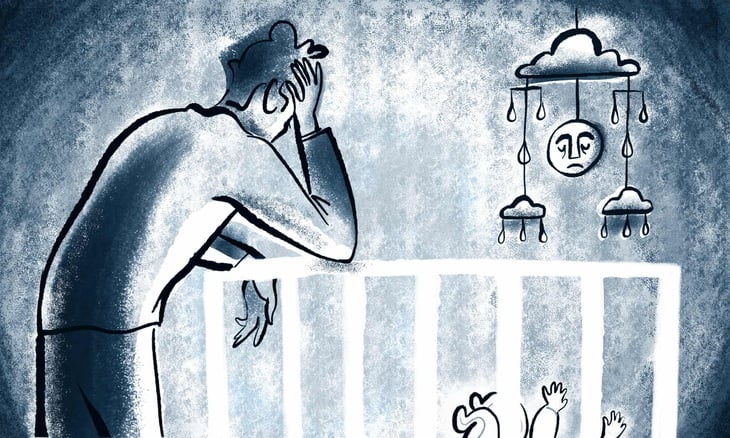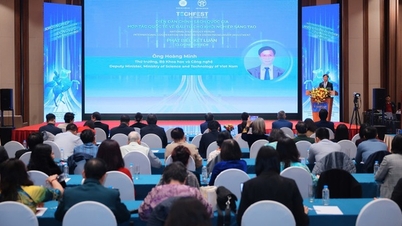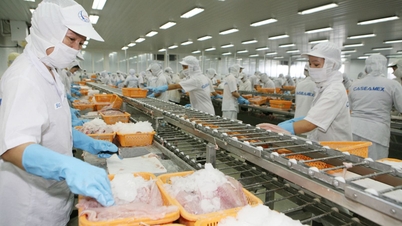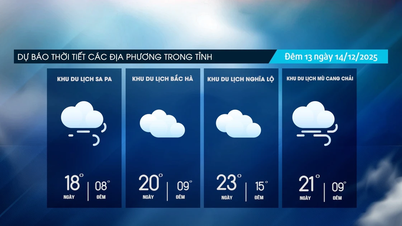
Men can also experience postpartum depression - Illustration: LAP
From impulsive behavior to signs of mental instability
On October 23rd, a serious incident occurred at Nghe An Obstetrics and Pediatrics Hospital, shocking the public: a man attacked five people with a knife, injuring three medical staff members and two patients' relatives.
According to information from the Nghe An Provincial Police, a man named Ban Van Vy (from Bac Ninh province) brought his wife back to their hometown to give birth at Nghe An Obstetrics and Pediatrics Hospital on October 17th. After the twin delivery via cesarean section, one of the babies was in poor health and required intensive treatment.
Believing his child wasn't receiving adequate care and suspecting a "baby swap," Vy lost control and attacked five people with a knife, injuring them.
Verification results showed that Vy had no prior criminal record, did not use drugs, and was not receiving treatment for a mental illness. He admitted to spending many sleepless nights caring for his child, experiencing mental instability, anxiety, and extreme stress.
The wife confirmed that her husband was an active and sociable person, and that he had been normal in the days prior, showing no unusual behavior.
That impulsive, violent, and unusual act stemmed from frustrations while caring for her newborn child who was receiving intensive treatment at the hospital.
Following this tragic incident, many people are asking: could this be a manifestation of postpartum depression in men, a problem that is often overlooked in society?
Postpartum depression: It's not just a mother's story.
According to the United Nations Children's Fund (UNICEF), postpartum depression has long been discussed primarily among women, as they experience profound hormonal and physiological changes during childbirth. However, modern research indicates that approximately 1 in 10 fathers may also suffer from postpartum depression.
The causes are not only due to psychological pressure but also to hormonal changes in the father during his partner's pregnancy and postpartum period. When becoming parents, men also face a range of changes: lack of sleep, financial stress, fluctuating marital relationships, feelings of "not being good enough" when caring for their child, or excessive worry about their child's health.
These changes can lead to manifestations such as irritability, withdrawal, insomnia, alcohol addiction, or aggressive behavior, but are often undetected or misinterpreted as "weakness" or "lack of confidence."
Dr. Ngo Thi Thanh Huong, a specialist in psychiatry (Institute of Applied Medical Technology), believes that the rate of postpartum depression in men can reach 7-8%. In cases where the wife or child experiences health problems, this rate is even higher.
"Many men have a patriarchal mindset, bearing the economic pressure, childcare responsibilities, and family conflicts... which leads them to experience stress and easily erupt into extreme emotions," Dr. Huong explained.
According to Ms. Huong, the biggest barrier is gender stereotypes. Men are often taught to be strong, not to cry, and not to show emotions. This makes it difficult for them to seek help, and when the pressure exceeds their limits, uncontrollable behaviors can occur.
Therefore, experts also recommend that families and society need to change their perspective on men's emotions; they also have the right to be vulnerable, to share their feelings, and to receive support. And postpartum depression is not just a problem for women, but for men as well.
In the case at Nghe An Obstetrics and Pediatrics Hospital, although the specific cause has not yet been determined, this serves as a wake-up call about the need to pay more attention to the mental health of fathers during the period when their wives give birth and they are caring for young children.
Counseling, screening, and early detection of symptoms of stress, insomnia, and prolonged anxiety are essential, not only for mothers but also for fathers.
Source: https://tuoitre.vn/tu-vu-hanh-hung-o-benh-vien-nghe-an-canh-bao-tram-cam-sau-sinh-o-nam-gioi-20251025162108154.htm




![[Photo] Prime Minister Pham Minh Chinh attends the Conference summarizing and implementing tasks of the judicial sector.](/_next/image?url=https%3A%2F%2Fvphoto.vietnam.vn%2Fthumb%2F1200x675%2Fvietnam%2Fresource%2FIMAGE%2F2025%2F12%2F13%2F1765616082148_dsc-5565-jpg.webp&w=3840&q=75)













































































































Comment (0)